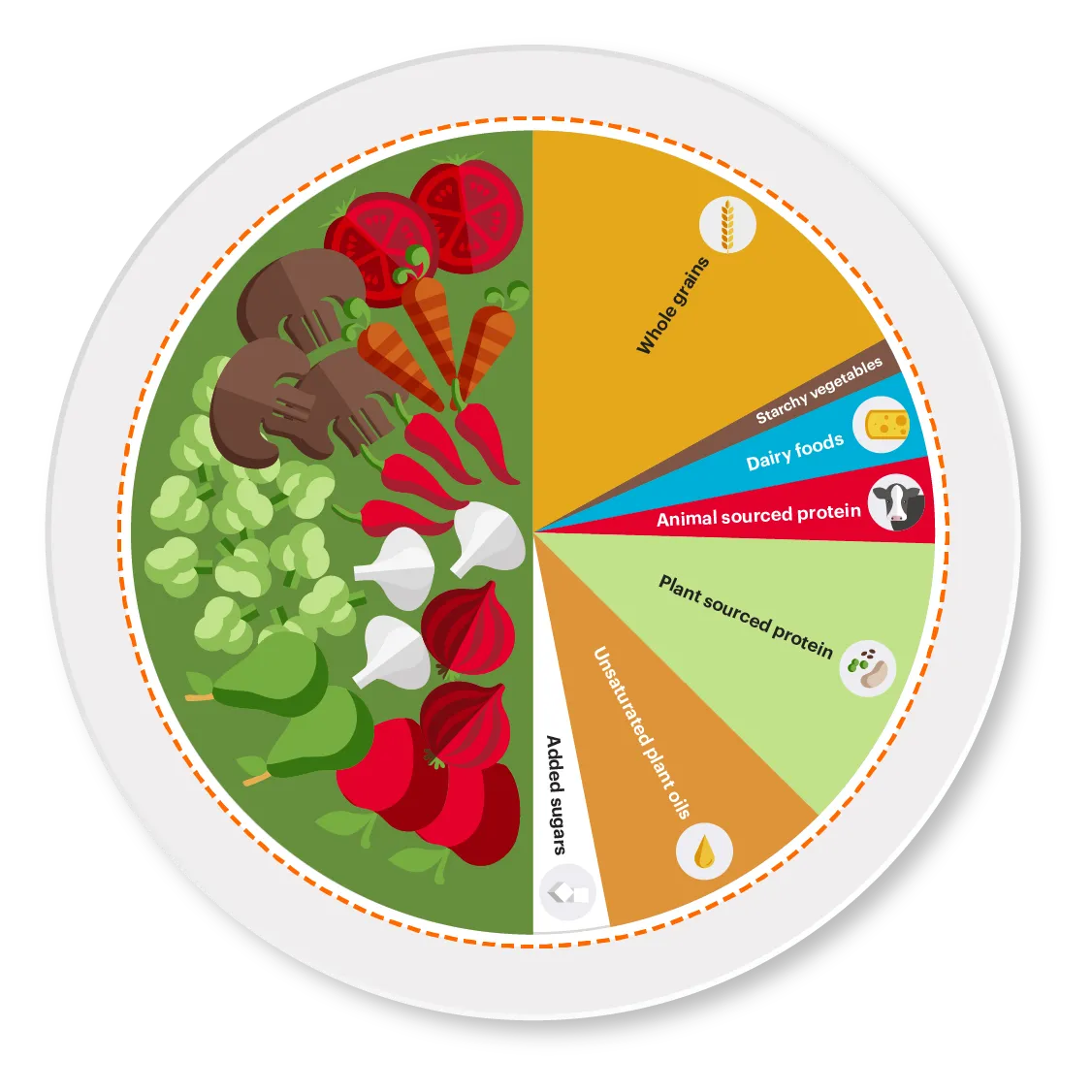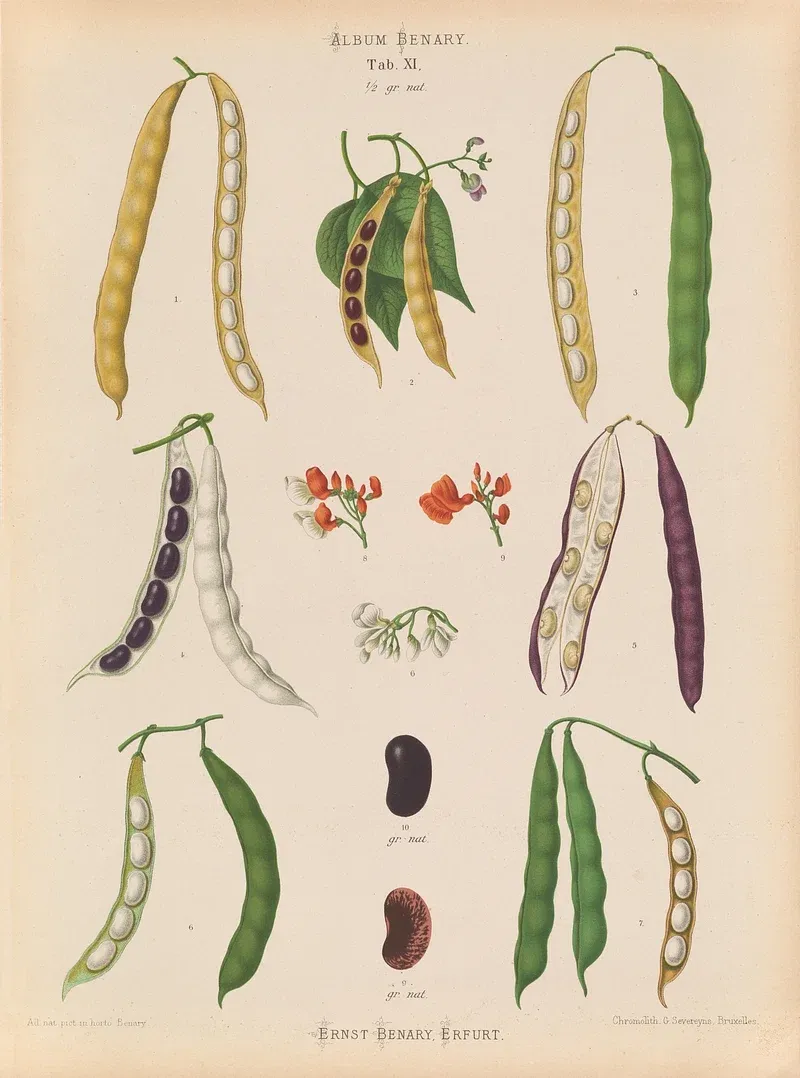If you are interested in sustainability, you have most likely heard that most people need to make changes to their diet in order to reduce global carbon emissions. As foods derived from animals contribute most to carbon emissions, it is often suggested that everyone should follow a vegan or plant-based diet in order for the food system to be sustainable.
I don’t doubt for a second that a vegan diet is the most sustainable! However, I wanted to investigate whether it is the only option. Anecdotally, a vegan diet is quite difficult to follow, can be more expensive and time consuming, and not suitable for everyone. There are many reasons why following a vegan diet can be more challenging - it requires a greater level of food literacy to ensure you get the correct nutrients than most other diets, for example, or there may be challenges with adhering to the diet when eating out or at social occasions. Many people I know (including myself!) have been vegan in the past but moved away from the diet after a few years due to reasons like this.
*To note, I appreciate the difference between a vegan diet and a plant-based diet. However, in this post I’m using ‘vegan’ to refer to both, for simplicity.
***
All foods require energy and resources to produce, including (but not limited to) land, water and nutrients in the soil. What we aim to do when following a ‘sustainable diet’ is to reduce the impact of what we eat to a level that is sustainable for the long-term health of the planet, in terms of climate change but also the biodiversity of ecosystems and fair wages and treatment for those who produce our food.
In 2019, a landmark report was released - the EAT-Lancet Commission on healthy diets from sustainable food systems. This report highlighted the need to shift global dietary patterns in order to feed and support the health of the global population while preserving biodiversity and the health of the planet. The report highlights the link between planetary health and human health - essentially, diets that are healthy for humans (think lots of variety and a focus on plant-based foods) are also beneficial for the planet. Personally, I find the thought of being able to look after myself and the planet at the same time very motivating.
The EAT-Lancet Commission details the shifts that people will need to make in their diets to achieve sustainability in the food system. Interestingly, while there is a large emphasis on vegetables, fruits, wholegrains and plant-based protein sources, small quantities of animal products are still included. The plate below visually shows the proportion of each food to make up the sustainable diet proposed in the EAT-Lancet report. While animal products are included, they make up a very small proportion of the total diet.

While this diet reflects a big change to what a lot of people in the Global North are currently eating, I think it is a more ‘manageable’ change to ask a population to make. There are health benefits to following a diet that is more focused on plants, too. One study in Switzerland found those following a diet similar to the EAT-Lancet diet had lower all-cause mortality than those who did not follow this dietary pattern (Martins et al., 2025).
While most people probably know that they should eat less meat, they may not realise how little it needs to contribute to their diet. The EAT-Lancet Commission states that global consumption of food such as red meat and sugar will need to halve, and intake of foods such as nuts, beans, fruits and vegetables will need to double in order to meet sustainability targets. Considering these are worldwide targets, and the Global North eats substantially more meat than the Global South, the reduction in meat and sugar consumption will need to drop considerably more in developed regions. The Food Foundation reports that diets in the UK are high in red meats such as beef and lamb, and production of these meats are linked to increased biodiversity loss as well as producing more carbon emissions than other foods. Additionally, the majority of the impact of UK diets on biodiversity loss occurs overseas, because the UK imports a lot of meat products.
***
While eating vegan has the lowest impact on the planet, it is not a change that entire populations are likely to make. I believe that we should all aim to be better (whatever that looks like for each individual) in regards to sustainability and dietary habits, and not criticise ourselves or others for not achieving perfection. I may be projecting, but occasionally I feel like I will be judged for ‘not caring enough’ if I don’t follow the most sustainable option all of the time. This used to make me not want to try at all, because I will inevitably trip up at some point. However, now I try to take a more balanced, gentle viewpoint, and encourage others to do the same. Trying your best is miles better than not trying at all!
Additionally, food has other purposes beyond just being fuel. It is a social catalyst and helps to bring people together and build community, and every culture and household has specific foods for celebrations and special occasions. The social value of these foods should be preserved alongside eating more sustainably. Many public figures online talk about an ‘80/20’ approach to healthy eating - 80% of the time the focus is on healthy eating, and 20% of the time food is to be enjoyed without worrying about whether it is the ‘healthy choice’ or not. This kind of approach is easier to stick to because you don’t need to deny yourself any foods - they all have a place in your diet. We can all also apply this to eating sustainably. The majority of the time, we choose options that are beneficial for the planet (and as we have seen earlier, these choices are also beneficial for our health). And the remainder of the time, we can enjoy food, without criticising ourselves for not always picking the best choice.
If you would like to read more on this topic (I find it endlessly interesting), EAT have a very good information section on their website: https://eatforum.org/eat-lancet-commission/the-planetary-health-diet-and-you/. Additionally, the Food Foundation’s Broken Plate report talks about the UK’s food system as a whole, including environmental issues, but really highlights the inequalities in access to food in the UK. It’s a really insightful read: https://foodfoundation.org.uk/publication/broken-plate-2025.
References
Food Foundation (2025) The Broken Plate 2025: The State of the Nation’s Food System. Available at: https://foodfoundation.org.uk/publication/broken-plate-2025.
Martins, L. B., Gamba, M., Stubbendorff, A., Gasser, N., Löbl, L., Stern, F., Ericson, U., Marques-Vidal, P., Vuilleumier, S. and Chatelan, A. (2025) ‘Association between the EAT-Lancet Diet, Incidence of Cardiovascular Events, and All-Cause Mortality: Results from a Swiss Cohort’, The Journal of Nutrition, 155(2), pp. 483-491. doi: 10.1016/j.tjnut.2024.12.012.
Willett, W., Rockström, J., Loken, B., Springmann, M., Lang, T., Vermeulen, S., Garnett, T., Tilman, D., DeClerck, F., Wood, A., Jonell, M., Clark, M., Gordon, L.J., Fanzo, J., Hawkes, C., Zurayk, R., Rivera, J.A., De Vries, W., Majele Sibanda, L., Afshin, A., Chaudhary, A., Herrero, M., Agustina, R., Branca, F., Lartey, A., Fan, S., Crona, B., Fox, E., Bignet, V., Troell, M., Lindahl, T., Singh, S., Cornell, S.E., Srinath Reddy, K., Narain, S., Nishtar, S. and Murray, C.J.L. (2019) ‘Food in the Anthropocene: the EAT–Lancet Commission on healthy diets from sustainable food systems’, The Lancet, 393(10170), pp. 447-492. doi: 10.1016/S0140-6736(18)31788-4.
